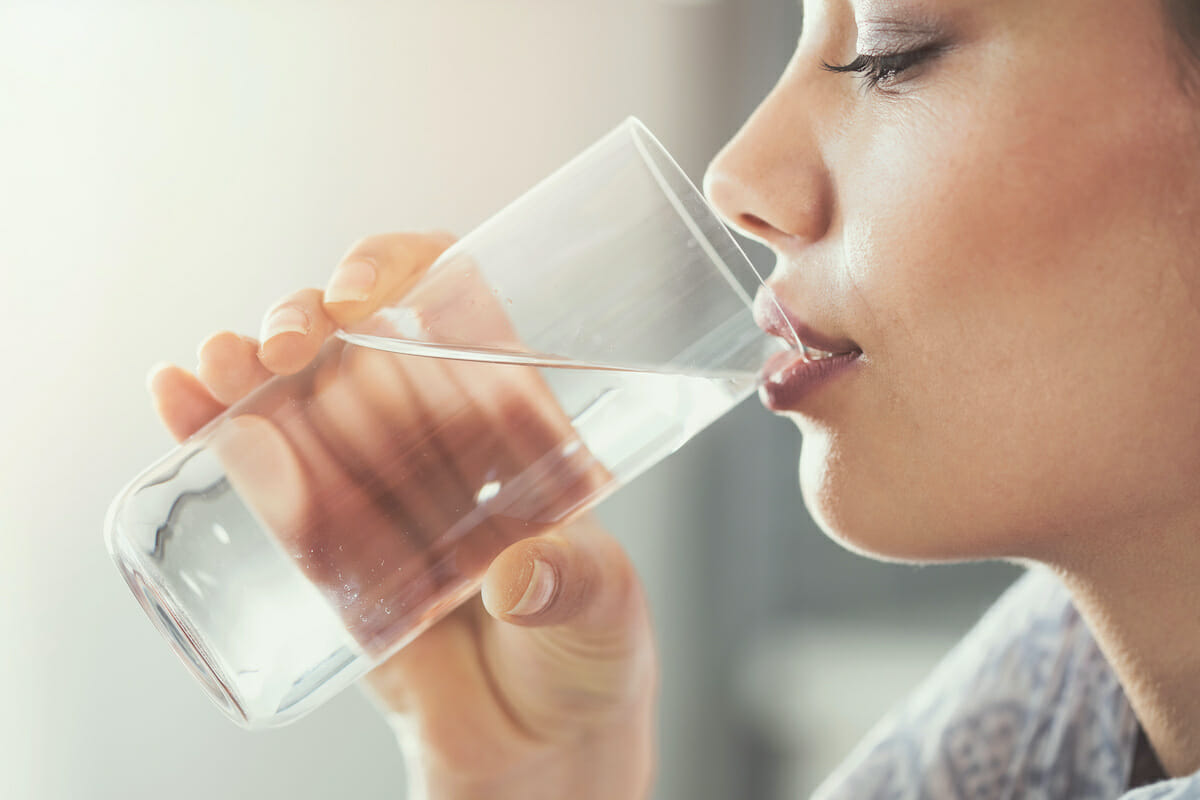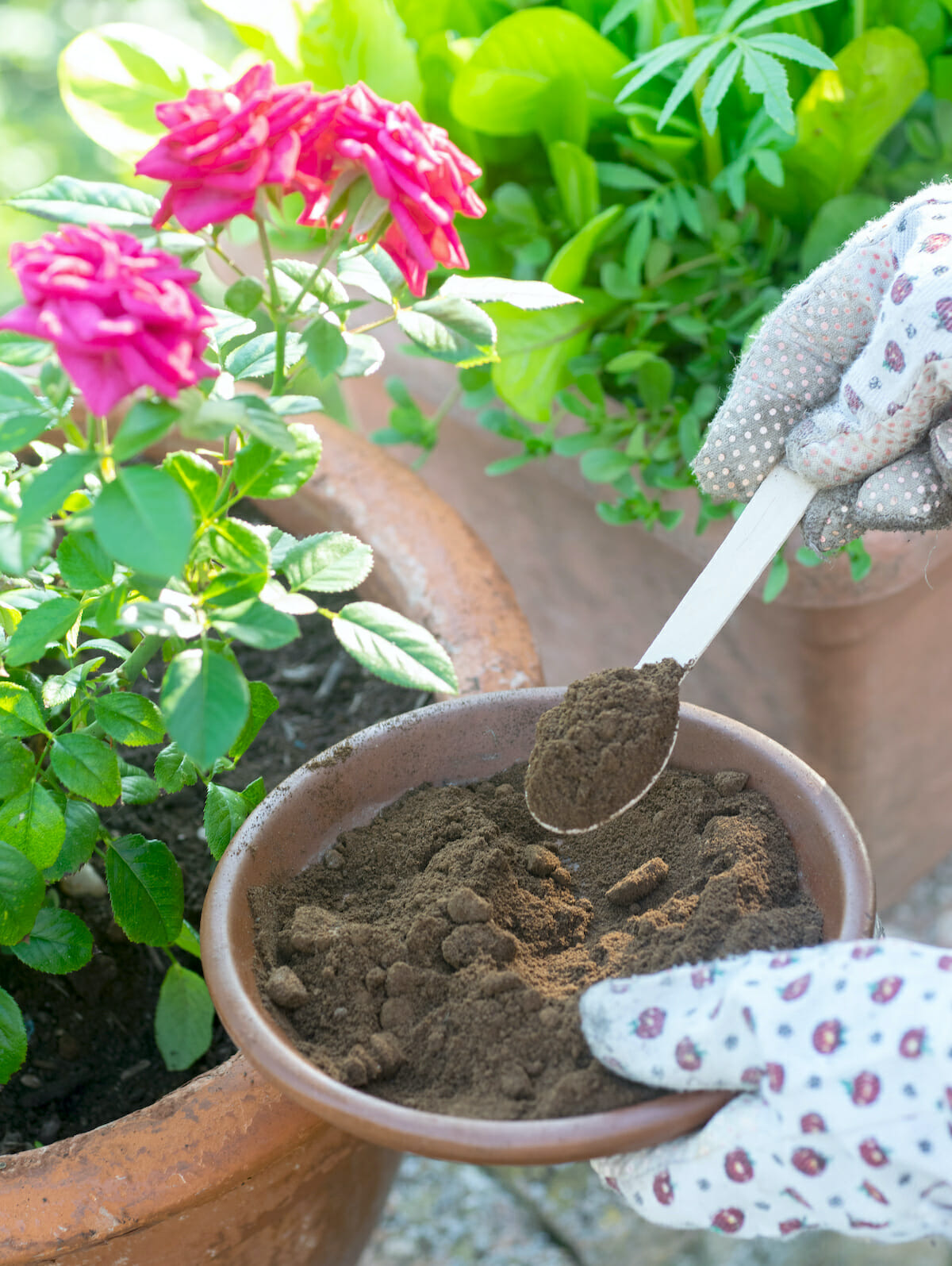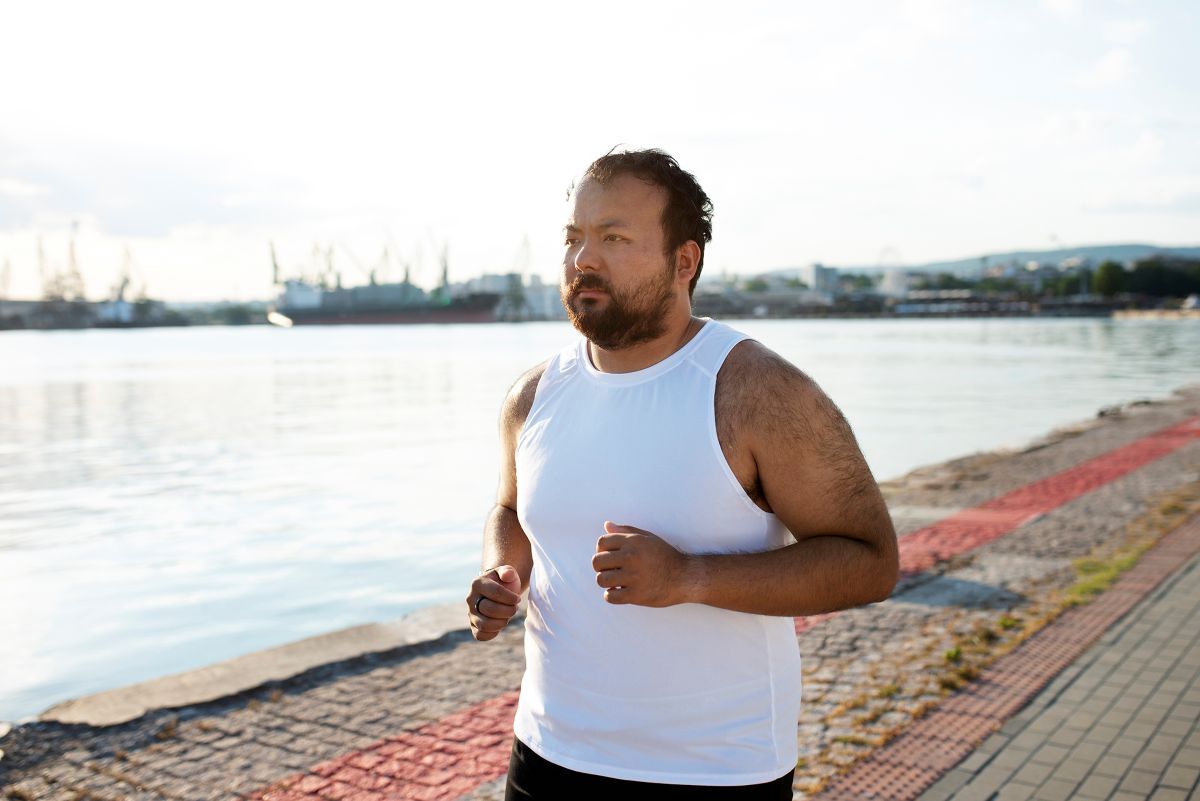- A recent study hypothesized that optimal hydration may contribute to healthy aging in humans.
- Researchers looked at levels of serum sodium in the body as an indicator of hydration.
- The findings show that higher levels of serum sodium during middle age may contribute to the development of chronic disease and possibly premature death.
- Further studies are still needed to determine the link between hydration and aging.
- The correct amount of water a person should drink to stay hydrated may vary depending on their health and age.
A new study from researchers at the U.S. National Institute of Health (NIH) reports that middle-aged people who have higher serum sodium levels in their blood are more likely to experience poor health and a higher risk of early mortality.
Serum sodium levels may become elevated when a person has not consumed enough fluids. Healthy serum sodium levels range from 135–145 milliequivalents per liter (mEq/L). The most usual cause for high sodium levels is insufficient water intake. In addition, researchers found that participants with low serum sodium levels (less than 142 mEq/L) had up to a 50% increased risk of being older than their chronological age.
The findings of the study were recently published in eBioMedicine.
How much water do you need to stay hydrated? While conventional wisdom recommends 8 glasses of water—64 fluid ounces—each day, this amount is not sufficiently supported by evidence.
According to the Centers for Disease Control and Prevention (CDC), the optimal amount of water a person should consume daily depends on the individual.
Among young adults and middle-aged people, the average amount of water intake varies by age. There is no fixed amount of fluid recommended by age, but some patterns emerge among healthy individuals doing a moderate amount of activity in a temperate climate.
The following show the currently recommended average water intake for people of different ages.
Infants: Experts do not recommend plain water for infants before the age of 6 months. The CDC says that if infants over 6 months of age need additional fluid on hot days, they can consume water in a bottle. However, their primary form of fluid and calories should be breast milk or formula.
Children over 12 months of age should be encouraged to drink water in the following situations:
- as part of their daily routine (for example, after brushing their teeth and before, during, and after playtime at school)
- when the weather is warm
- as an alternative to sweetened drinks and juices
Children should limit their juice consumption to one glass per day.
Parents are advised to keep a pitcher handy to encourage healthy water-drinking habits, and schools should have water fountains or equivalent facilities.
Adults ages 19–30 years: The recommended adequate intakes of total water from all sources each day for most adults between 19 and 30 years of age are:
- 3.7 liters (or about 130 fl oz) for men
- 2.7 liters (about 95 fl oz) for women
People who are pregnant are likely to need an extra 0.3 liters (10 fl oz). Those who are breastfeeding will need an additional 0.7 to 1.1 liters (23–37 fl oz).
Older adults may be at risk of dehydration due to health conditions, medications, loss of muscle mass, reduction in kidney function, and other factors. With respect to the recommendations of international organizations, the World Health Organization recommends 125 fluid ounces/day for males and 92 fluid ounces/day for females, with those over 70 years included in the recommendations for healthy adults over 19 years old. This advice is also supported by the U.S. National Academy of Medicine and the U.S. National Center for Health Statistics
Older adults who are well hydrated have been found to have:
- fewer falls
- less constipation
- a lower risk of bladder cancer, in men
Dehydration has been linked to a higher frequency of:
- urinary tract infections
- confusion
- kidney failure
- slower wound healing
- some people may require less water than the average recommendations: For instance, if people who have heart failure “drink too much water, it can cause fluid build-up in the body, and contribute to shortness of breath.
- People with kidney failure may also drink less water since their kidneys are less equipped to maintain a balance of fluid in their bodies.
- In contrast, some individuals may require more water, such as those with a higher body mass index (BMI).
- But for many people, it’s also possible to consume too much water. Study researchers have noted that when you drink too much water, your kidneys cannot get rid of the excess, and it can cause hyponatremia, a dilution of sodium in your blood, which can be a life threatening event.
Hydrating with fluids other than water: Coffee, tea, and electrolyte beverages can count toward your hydration goals, but generally, they should not be your main hydration source. Choosing plain water or adding cucumber, lemon, or lime is most advisable as your main source of hydration for optimal heart health. Water-rich foods, in which 90% or more of their content is water, are also good options. Hydrating foods include watermelon, cucumber, and strawberries. In addition to water and sports drinks, coconut water, pickle juice, electrolyte-infused waters or electrolyte tablets, homemade electrolyte drinks, smoothies, fruit juices, or Pedialyte are recommended.
Meeting your hydration goals: “Hydration is important for all ages, and a population survey finds that about 50% of people do not drink recommended amounts, including children,” Natalia I. Dmitrieva, Ph.D., lead study author and NIH researcher in Bethesda, MD said.
“This percent is even higher for older people, who tend to drink less because thirst sensation deteriorates as we get older.”
Dr. Dmitrieva suggested the best way to stay adequately hydrated is to keep track of how much fluid you drink each day. She advised that people take special care to drink enough in hot environments or when engaging in intensive sports activities.
“Weekend warriors [and] athletes demonstrate a wide variability in baseline physiology, overall health status, medical conditions, injuries, training regimens, and other factors,” another study researcher added.
Be vigilant for signs of dehydration, characterizing the most obvious and concerning symptoms as being [reduced] sweat response, mental status changes, and decreased or absent urine output. Pay particular attention to pre-hydration — ‘topping off the tank’ before endurance activities.
When should a person drink water? Most of the time, the body’s sensitive natural mechanisms maintain appropriate fluid levels.
There are two main ways the body does this: (1) through thirst, which tells a person to drink more water; and (2) through urine output, in which the kidneys regulate the water we consume by either emptying it into the urinary bladder or holding onto it in the blood plasma.
The kidneys also regulate the balance of electrolytes, such as sodium and potassium, in the body fluids. Additionally, they receive hormonal signals to conserve or release water into the urine if the brain detects changes in the concentration of the solutes in the blood.
Summary: The amount of water a person needs varies based on their age, size, activities, and the temperature. Although many people follow the eight-by-eight rule, it may be outdated and overly simplistic. The body is incredibly good at maintaining its water balance, and it urges people to drink more by making them thirsty.
People who work outdoors in hot climates or exercise vigorously may need to consume more water. They can also get fluid from foods high in water, such as fruits and vegetables.










